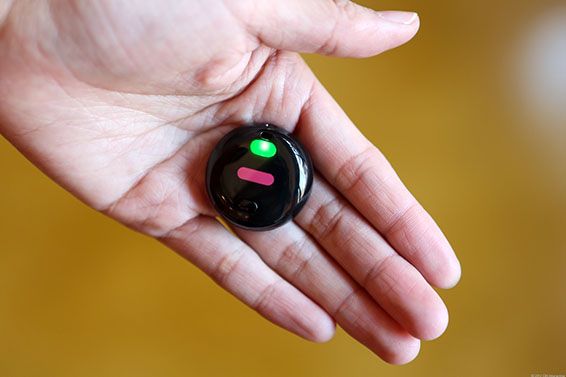Over the past two years, I’ve put a lot of effort into getting fit.
Fit of body, fit of mind, and perhaps even of spirit. I switched to a Paleolithic style diet, I started bouldering 2-3 times per week, and I’ve devised ways of reducing my stress levels and improving the quality of my sleep.
The trouble, is that all of these things are difficult to quantify without good tools – especially sleep. How much are you actually jogging? Are you really losing weight? How many hours did you actually get of R.E.M sleep? Thankfully there’s not only a name for this activity, or movement, or whatever you want to call it – the quantified self – but there are also a wide range of fitness trackers on the market that include everything from a Pedometer (step counter) to sleep quality trackers. How they do that part, I’m not sure, but they’ve got them.
Enter the Fitbug Orb
I’ve been looking at a wide range of fitness trackers the last few weeks (a friend of mine suggested I check them out), and though many of them share the same features, I’ve noticed one slight problem: they’re bloody expensive.
At least, most of them are. The Fitbug Orb seems to be the one exception there. It’s feature packed, light, inexpensive, and… well, check out this little overview of the device and then we’ll continue.

You can pick up the Fitbug Orb for about $49.95 USD on the official website (https://www.fitbug.com/us/orb), but aside from the price, I really like how tiny and modular the device is. You can wear it on your belt, on your wrist, or dangling from a lanyard. These options are all included, of course.
If this is starting to sound like a bit of a sales pitch, well… I’m actually here to ask you about your own experiences. Have you tried out the Fitbug Orb, and if so, what did you think? I’m especially curious about the software component.
If you’ve got one, please leave me a comment below! Even if you’re simply looking to try one, tell me about your research so far.
(Photo via CNET)

